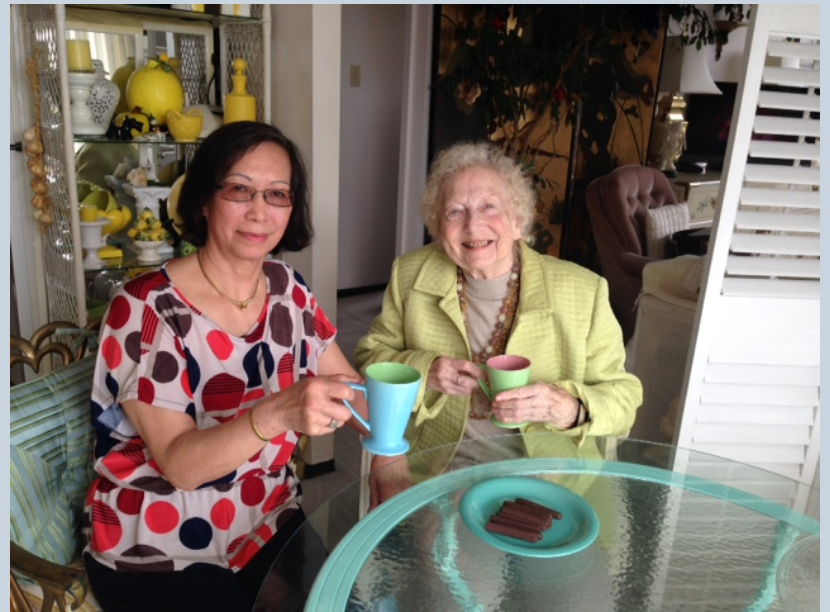Return to Health

Seniors Serving Seniors is a Victoria-based organization that runs a program called Return to Health, which provides support to seniors transitioning from (or in some cases, to) the hospital and who are isolated or lack social support. Volunteers provides practical support to seniors to ensure a smooth transition, social support, encouragement, and connection to community resources.
Most participants are referred to the program by the local health authority. How long Return to Health provides supports for, depends on the seniors’ needs, but it usually ranges from between one week and three months. The program does not provide home health care, home support, personal care and other similar services, as these are typically provided by the health authority. When participants first come in contact with the program they are given an initial assessment by the Community Services Coordinator, and participants are monitored on an ongoing basis to ensure their needs do not exceed the capacities of the program (when this does happen, they are referred to the health authority).
Return to Health started out in 1998 as a small volunteer program, and when Vancouver Island Health Authority learned about the program they approached Seniors Serving Seniors to form a partnership. As a result of this partnership, Vancouver Island Health Authority hired a nurse to coordinate the program, while Seniors Serving Seniors remained responsible for training the volunteers. After working for the program for many years, this nurse retired, which prompted Vancouver Island Health Authority to fund Seniors Serving Seniors directly, so they could hire their own Community Services Coordinator and manage all aspects of the program.
The role of the Community Services Coordinator is to provide the initial assessment and the necessary assistance for the participant to be supported by a volunteer. The Coordinator supports the volunteers, monitors participants and assists with tasks beyond the scope of a volunteers (such as assisting with banking and applying for benefits).
The other staff person in the program is the Return to Health Education Coordinator, who is responsible for training volunteers. Volunteers support participants with a number of different tasks depending on their needs. These can include providing transportation (to appointments etc.), helping with grocery shopping, getting the mail, connecting them with community resources, providing companionship and returning loaned medical equipment. Return to Health currently has 25 volunteers, many of whom are seniors themselves. Volunteers undergo a 15-hour training course (over five weeks) to learn about working with seniors, having good communication, navigating the healthcare system, and available community services. The training program is revamped every year to ensure it is up-to-date. Monthly meetings provide ongoing support for the program’s volunteers.
Funding comes from Vancouver Island Health Authority (for the Community Services Coordinator and for SSS to oversee the program), the United Way (for the Education Coordinator), and through Community Gaming Grants received by Seniors Serving Seniors
Impact
Return to Health provides support to isolated seniors and connects them with community resources to ensure their safety, well-being, and quality of life. Seniors transitioning out of the hospital receive practical support as well as social and emotional support.
The program helps to address a range of issues facing vulnerable seniors such as:
• social isolation – by providing companionship and encouraging participation in community programs;
• nutritional risk – by arranging grocery services and encouraging healthy meal options;
• financial security – by assisting seniors to apply for GIS, Pharmacare etc.;
• a safe living environment – by providing information on housekeeping services and suggestions for changes for a safer environment;
• transportation – by providing transportation to medical appointments and assisting with signing up for HandyDart services.
Return to Health has the potential to prevent or delay hospitalizations or residential care placements. The program currently serves approximately 150 seniors a year. According to the B.C. Ombudsperson, the cost of an acute care bed ranges from approximately $800-$2000 a day and a residential care bed is approximately $200 per day,1 suggesting there is the potential for significant cost savings when seniors avoid being hospitalized.
1 See B.C. Ombudsperson (2012). The Best of Care: Getting it Right for Seniors in British Columbia (Part 2): Volume 2. Public report no. 47 to the Legislative Assembly of British Columbia.
-
Location
Victoria
-
Organization
Newsletter
Sign up for the Healthy Aging CORE BC e-news to keep up-to-date with activity from the platform and the Community-Based Seniors Services (CBSS) sector across the country.
